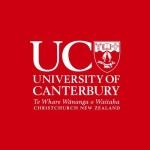UC-led project receives major funding boost
A University of Canterbury academic has received almost $1million in funding for a research project investigating the long-term neurological development of preterm infants.
Professor Lianne Woodward (Psychology) has been awarded $923,902 from the Health Research Council of New Zealand (HRC) in its latest round of health research funding for a project she leads titled “Neurological Development of the Very Preterm Infant: A Longitudinal Study”.
The project, which is among 52 to receive funding from the HRC, has been tracking the neurological and psychological development of 110 babies born very preterm (below 33 weeks gestation) and 110 babies born around term (38-41 weeks gestation) at Christchurch Women’s Hospital between 1998 and 2000. Findings to date have led to novel insights into the effects of preterm birth on early brain development as well as the neurodevelopmental challenges many of these children face as they grow up.
The aim of the next study wave is to apply state-of-the-art MR imaging methods, in conjunction with neurodevelopmental evaluation at age 12 years, to understand the longer term consequences of preterm birth and early brain injury for brain development and child clinical outcome.
Professor Woodward, Principal Investigator of the Canterbury Child Development Research Group, welcomed the funding, and said it “provided vital support for her team and would take their work to an exciting new level”.
It will also strengthen the team’s collaborative links with Washington University Medical School who will assist with MRI analysis.
“This study will be unique internationally in being one of the first to have serial MRI data on a large, well defined group of preterm children who have been studied from birth through until late childhood.
“This serial brain data, when combined with detailed information about children’s health, behaviour and school progress over time, will help us to understand why some very preterm children develop problems and others do not. Findings will also provide valuable information on the extent to which compensatory brain changes are possible following early brain injury.”
Such information is important, said Professor Woodward, to help ensure clinical interventions optimise brain development and child outcomes during the educationally crucial preschool and primary school years.
HRC Chief Executive Dr Robin Olds said the council was supporting “some very exciting studies this year, which reflect the very high calibre of New Zealand health research”.
